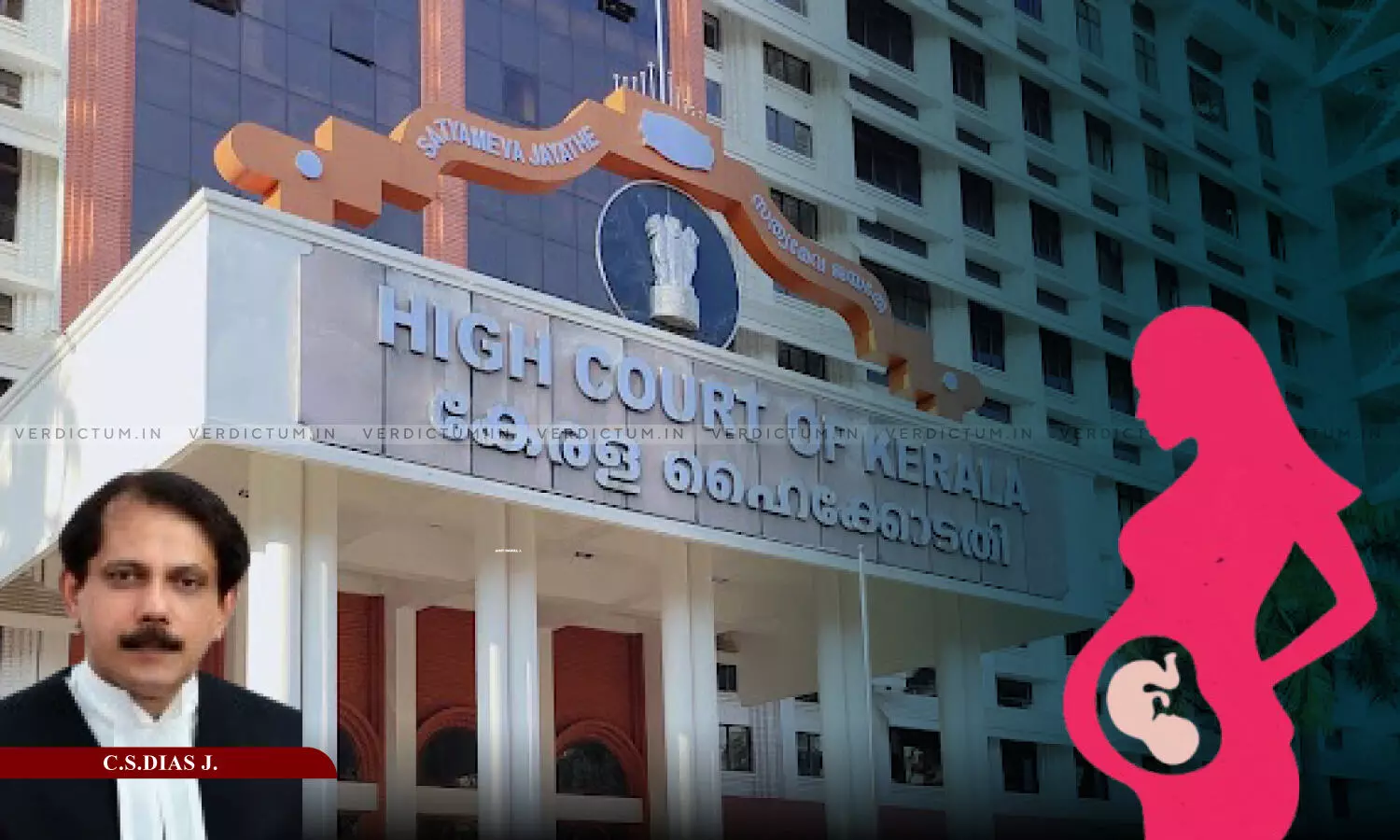
ART Act: Kerala High Court Permits Married Women Below Upper Age Limit To Accept Donor Sperm When Husband Is Above Age Limit
 |
|Under the Assisted Reproductive Technology (Regulation) Act, 2021, the Kerala High Court permitted a 46 year old wife to accept donor gamate even though her husband is above 55 years old.
The Kerala High Court has allowed a Writ Petition filed by a married woman seeking to undergo an IVF procedure under the Assisted Reproductive Technology (Regulation) Act, 2021 (ART Act) using donor sperm, as she is below the upper age limit of 50 years prescribed under the ART Act, while her husband is above the upper age limit of 55 years.
The 1st Petitioner wife was 46 years old while her husband was above 55 years old. The question was whether the wife could approach the clinic as a "Woman" as opposed to a “Commissioning Couple” as defined under the ART Act.
The Bench of Justice CS Dias held, "Without any express provision in the Act restricting commissioning couples on the basis of their composite age, there is no legal bar in a woman who is otherwise eligible under Section 21 (g) (i) from applying the ART procedure even if her husband has surpassed the age limit. The same rationale applies to men, ensuring that single and married individuals enjoy equitable access to reproductive assistance."
Advocate Akash S appeared for the Petitioner while Advocate M. Shajna appeared for the Central Government and Government Pleader Vidya Kuriakose for the State.
Objection
The Central Government opposed the Writ Petition arguing that the husband and the wife, both have to qualify based on the age limit since they fall under the definition of "Commissioning Couple".
"Any married woman or married man constituting a commissioning couple and wanting to undergo an ART procedure has to simultaneously qualify the twin conditions under Sections 21(g)(i) and 21 (g) (ii) of the Act. There is no indication in the Act that only one among the men or women constitutes a commissioning couple", the Centre submitted.
It was also contended that if a married woman is permitted to approach the clinic as a "Woman", her husband will not come into the picture, and she will escape the stipulation under Rule 13(1)(f)(iii), which requires consent of the husband and Section 2(1)(j), which requires that the married couple should be "infertile" as defined in the ART Act.
Findings
The Court found that though the ART Act prescribes an upper age limit for the husband and the wife separately, there is no composite age criterion for “commissioning couples”.
"A careful reading of the above suggestions reveals that the Parliamentary Standing Committee had suggested the upper age limit for women and men not to exceed 45 and 50 and the couple's combined age (woman and man) not to surpass 90 years to draw a parallel with the age restrictions in the Adoption Regulation. Nevertheless, the Parliament has consciously omitted incorporating any age criteria for a “commissioning couple”, possibly recognising the distinct nature of ART services and the procedures for adopting a child", the Court held.
The Court further held, "Conspicuously, the Act does not contain the concept of combined age for commissioning couples analogous to the composite age criteria applicable to prospective adoptive parents. Instead, the Act adopts an individual-centric approach, whereby the age eligibility criteria are separately laid down for women and men rather than collectively for a couple. This interpretation is further supported by Section 2 (1) (n) of the Act, which defines “patients” as both individuals and couples seeking infertility treatment at a clinic."
The Court held that the husband is only required under the ART Act to provide his consent to the wife undergoing the procedure using donor sperm.
Unconstitutional Classification
The Court held that accepting the argument of the Central Government would mean that a married woman is denied access to the procedure only on account of her marital status while a single woman can access the treatment, which would amount to unconstitutional classification.
"....where a married woman is ineligible for an ART procedure solely because her husband has surpassed the age limit; the woman would become eligible immediately on her legal separation or becoming a widow. Such a classification would be a fallacy and would put married women at an unfair disadvantage when compared to single women to access ART procedures. It can never be presumed that the Parliament intended such an inequitable classification within a benevolent statute like the Act", the Court held.
The Court further held, "Without any express provision in the Act restricting commissioning couples on the basis of their composite age, there is no legal bar in a woman who is otherwise eligible under Section 21 (g) (i) from applying the ART procedure even if her husband has surpassed the age limit."
Conclusion
The Court concluded that there is no legal bar for the 4th respondent Hospital/Clinic to apply the ART procedure on the wife. "The experience of childlessness is a silent anguish known to only those who walk that path", the Court added.
The Court thus allowed the Writ Petition answering the question in favour of the wife, by directing the Hospital/Clinic to provide ART services to the wife as per the provisions of the ART Act after obtaining the consent of the husband.
Cause Title: XYZ & Anr. v. Union of India & Ors. (W.P.(C) No.31161 of 2024)
Appearance:
Petitioner: Advocates Akash S. Grish Kumar MS, Richu Theresa Robert
Respondents: Advocate M. Shajna, CGC and Vidya Kuriakose, Government Pleader
Click here to read/download Judgment